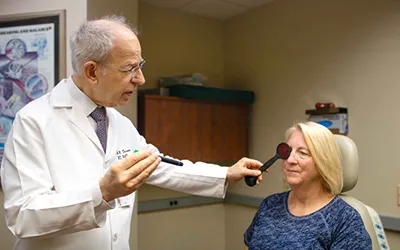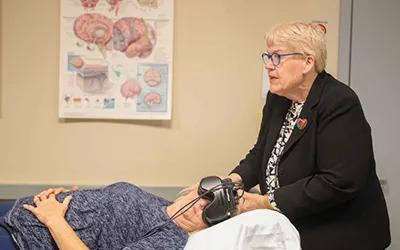The Pittsburgh Hearing Institute

Vertigo and Balance Disorders
Vertigo and balance problems significantly impact individuals with hearing loss, compounding their challenges. The inner ear, responsible for balance, is closely linked to hearing; dysfunction can lead to both auditory and vestibular issues. Individuals may experience dizziness and unsteadiness, increasing the risk of falls and injuries. This often results in reduced mobility and social isolation, as people may avoid situations requiring balance. Researchers are advancing in-office testing and developing devices to capture vertigo attacks at home, aiming to improve diagnosis and management for those affected.
Vestibular Rehabilitation
By addressing balance disorders often associated with auditory issues, this specialized therapy helps patients regain stability and confidence in their movement. Improved vestibular function can lead to better overall physical health and reduce the risk of falls. Additionally, a holistic approach that includes auditory and vestibular assessments fosters a comprehensive understanding of the individual’s needs, promoting tailored interventions for optimal outcomes. Researchers are developing tools to optimize rehabilitation in the home and looking into the impact of vestibular therapy on tinnitus management.

